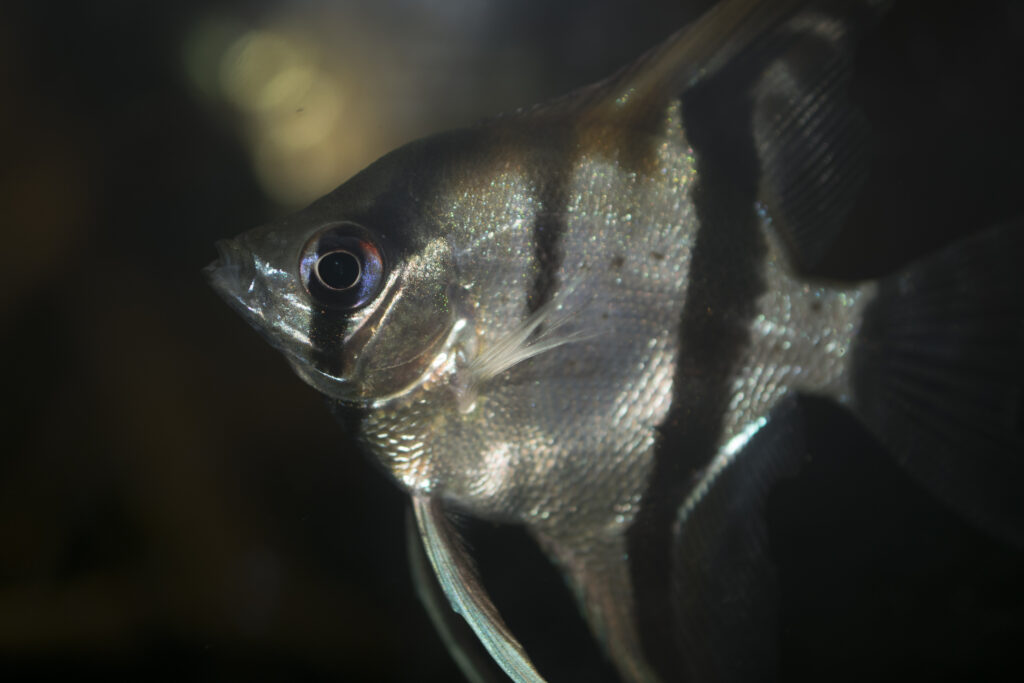Keeping fish in the water that suits them.

Have you heard the terms hard and soft water fish? Maybe you’ve been told you have incompatible fish, or you’re looking to explain to people that modern tank fish are bred to suit a range of conditions (spoiler they’re not) or you want to find out why, well read on.
What is hard or soft water?
Water contains dissolved minerals, the chief one being calcium carbonate, from limestone, and magnesium from Dolomite or dolomitic limestone. General Hardness (GH) measures the calcium and magnesium, although some tests kits only measure calcium, as magnesium isn’t normally a major part of GH. Carbonate hardness (KH) is a measure of the carbonates and bicarbonates.
Why are GH and KH important?
GH is the calcium content that fish need, and also provides positive ions in the water that the fish may use in some processes, KH on the other hand impacts on pH and keeps it stable. The nitrogen process leaves acid in your water, and KH mops this up and stops your pH from dropping like a stone.
Why can’t I keep any fish I want in my water?
Fish have evolved over millions of years to live in particular conditions. Let’s look at what happens when you keep a hard water fish in soft water
- Hard water fish are adapted to uptake calcium via their gills, they often can’t absorb calcium from their diet. They will start to have to use the calcium from their skeleton and rapidly they will start to lose nerve function as the calcium needed for nerves to send messages start to shut down.
- Soft water often contains tannic acid. This will bind to proteins and prevent their absorption. Soft water fish have enzymes to break apart these proteins and acids, hard water fish do not.
- To remove waste hard water fish have often developed transport mechanisms in their gills that use the excess calcium in the water to move the waste out of their bodies. In soft water these ions are not present.
What about keeping soft water fish in hard water.
Soft water fish will survive longer in hard water than the visa versa, but they still live a fraction of their potential lifespan. we see fish that are far more susceptible to disease, for example soft water cichlids suffering from hole in the head disease far more. But there are some things we know.
- Soft water fish have evolved in specific conditions that are often very acid and very soft. In harder water they are exposed to diseases that they have no protection against.
- With the outside environment being harder than their bodies are prepared for they may struggle to remove all the waste from their body.
But they’re bred in my water!
Very few fish are bred locally, especially those in most shops. Most are bred on commercial farms, to maximise the amount of fish they are producing they often pick fish to breed that suit their water. They will also add wild-caught fish to the programme multiple times, with some farms using wild-caught fish at each generation. The fish are normally shipped in from Asia and Eastern Europe, as well as Florida. Add to that a percentage of fish are in fact wild-caught and there is no evolutionary pressure on them to adapt. Take the humble guppy, one of the species that has been in the hobby the longest, and crucial so different from its wild counterpart that introducing new blood is difficult. They will still struggle in soft water, and die much younger, after passing on their genes as often as they can.
Plus evolution is a difficult process, many species in the wild do not manage to adapt and will go extinct. Look at the pressure on species due to a slight worldwide temperature change, and slight change in pH in the oceans. Sadly that process, even though it is over decades may well cause the extinction of thousands of species of fish.
The processes of changing colour, or even shape is hugely different to changing the entire gill transport systems, their enzymes, the way they excrete waste, and more. Some fish may hang on longer than others, but the farms are not selecting for this, and neither are small scale breeders for the most. To see if that is working fish need to be allowed to grow old and then be selected for their abilities. By then they may not be as fertile, and normally will have been moved on to other people’s tanks.
But what if you’re wrong?
If I’m wrong and you change to keeping the fish in the ideal water for them, then what’s the harm? It’s definitely different to the alternative if I’m right and the fish are in completely wrong water parameters.
How do I know what fish to add to my tank?
I love biotope tanks. The idea is you pick a part of a river or lake that matches your water conditions and you pick fish that are suitable to be kept together from there. You can be as strict or as flexible as you like, as long as the fishes needs are met. Look out for ideas on the blog coming soon.
If that’s not your cup of tea make a list of the fish you keep and the list the parameters they thrive in. You may need to look at their natural range, and be aware that the extremes, especially if their range is suffering from pollution, are not ideal. Instead aim for the middle ground. You may need to move your fish into two or more tanks, but better that than watching them suffer.
